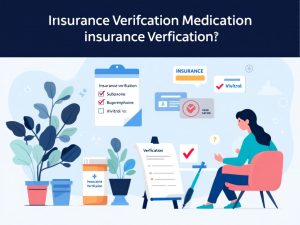Understand postpartum addiction challenges
Postpartum addiction support can become essential when you or a loved one experiences substance use struggles after childbirth. The period following the arrival of a new baby often includes both joyful milestones and intense stress. Your focus might shift entirely to your child’s well-being, which can leave you feeling overwhelmed by physical, emotional, and mental demands. In these moments, turning to substances might feel like a quick way to cope with added responsibilities or emotional turmoil.
The reality is that any form of addiction during or after pregnancy can become a barrier to a healthy transition into motherhood. Approaches that are nonjudgmental, empathetic, and research-based offer you the best opportunity for recovery. Whether you have concerns about opioids, alcohol, or any other substance, a supportive environment can empower you to heal.
Impact of mental health on new mothers
Many women face postpartum depression or anxiety alongside the demands of taking care of a newborn. According to the National Institute of Mental Health (NIMH), postpartum depression may begin within 4 to 8 weeks after childbirth, characterized by overwhelming sadness or anxiety. When mental health challenges intersect with substance use, it can become more difficult to manage day-to-day tasks or seek professional help.
In particular, the emotional and hormonal shifts that occur after childbirth may heighten the risk of turning to substances for self-medication. The situation is often compounded by a reluctance to share these struggles with family or friends due to stigma and the expectation to embrace motherhood with unyielding positivity. You might hesitate to seek postpartum addiction support because of guilt or shame, but acknowledging these struggles is the first step toward better health and a more fulfilling life with your child.
Key statistics on postpartum substance use
Several research findings underscore how urgent postpartum addiction support can be. A compilation of studies examining postpartum substance use found that among women with nonspecified or multiple substance use during pregnancy, there was a 44% prevalence of postpartum depression (NCBI). Another study by the Centers for Disease Control and Prevention (CDC) revealed that postpartum substance use was associated with depressive symptoms and stressful life events. If you are already navigating postpartum depression, having people who understand your experience, including dedicated mental health professionals, can be transformative for recovery.
As you progress through motherhood, consider that addiction does not reflect a failure or personal weakness. Instead, it shows a need for a safe, structured space where you can access comprehensive care. Such care should incorporate emotional support, evidence-based therapies, and treatment for co-occurring issues like anxiety or depression.
Recognize emotional and personal factors
Early recognition of the personal factors fueling postpartum addiction is crucial. When you have a deeper understanding of what might be driving your substance use, you can begin to address the underlying causes and triggers more effectively.
Postpartum depression and potential triggers
Postpartum depression can appear as persistent sadness, exhaustion, or anxiety that goes beyond typical “baby blues.” Some common triggers might include:
- Major life transitions, such as juggling career obligations and new-parent duties
- Sleep deprivation, which intensifies mood swings and lowers emotional resilience
- A lack of supportive community or accessible mental health care
- High expectations placed on new mothers, especially those without substantial help at home
These factors can push you to seek means of temporary escape through substances, thereby elevating the risk of dependency. With postpartum addiction support, you can find practical coping strategies for depression and establish a healthier emotional baseline.
Societal and familial expectations
You may feel pressure from family or friends to appear stable and calm, even when dealing with tumultuous emotions. Traditional views of motherhood can further compound stress if you believe you have to manage everything on your own. Societal expectations often discourage open discussions about addiction and mental health, particularly for new mothers. However, it is vital to remember that postpartum addiction support exists precisely to destigmatize these challenges. By breaking the silence and reaching out for care, you make a courageous decision that benefits both you and your family.
Explore comprehensive treatment approaches
A variety of treatment methods cater to different aspects of postpartum addiction, allowing for individualized plans that address both mental health needs and substance use issues. These approaches are grounded in evidence-based practices, ensuring you receive the support necessary for lasting recovery.
Cognitive-behavioral and dialectical therapies
Cognitive-behavioral therapy (CBT) is a foundational method for exploring how certain patterns of thought can contribute to your substance use during postpartum. This therapy teaches you to recognize unhealthy beliefs and replace them with healthier ones. Over time, you develop more adaptive behaviors, helping you refrain from turning to substances as a coping mechanism.
Dialectical behavior therapy (DBT) similarly focuses on tangible skills, such as emotional regulation and distress tolerance. For you, this can be particularly beneficial when hormonal fluctuations intensify postpartum emotional experiences. Learning to ride through challenging emotions without resorting to substance use can light a clearer path toward stable long-term recovery. If you need more information about CBT-based approaches for addiction, you can explore cbt for addiction.
Addressing co-occurring mental health conditions
Postpartum addiction and mental health disorders often appear together. Depression or anxiety might prompt you to self-medicate with substances, intensifying the negative cycle. A dual-diagnosis approach identifies both issues promptly and coordinates care for each condition, customizing your treatment experience. This ensures you not only conquer addiction but also find relief from postpartum depression, anxiety, or other underlying mental health disorders.
For certain severe conditions like postpartum psychosis, immediate and specialized treatment is critical. Professionally managed therapies, possibly combined with medication, can help you stay safe during moments of crisis. According to the Mayo Clinic (Mayo Clinic), postpartum psychosis is considered a psychiatric emergency that needs prompt hospitalization.
Medication-assisted therapy
Medication can serve as an integral piece of postpartum addiction support, especially if you have an opioid or alcohol dependency. Certain prescriptions help alleviate withdrawal symptoms and reduce cravings so you can focus on your psychological recovery. If you or a loved one is specifically managing an opioid addiction, you might benefit from an opioid addiction treatment plan that includes medication-assisted therapy.
Your medical provider will evaluate you for possible mental health needs, such as postpartum depression, and prescribe antidepressants or other medications if needed. Balancing treatment for both addiction and mood disorders lays the groundwork for sustainable well-being, ensuring that neither condition goes unaddressed.
Choose Epic Health Partners now
When you embark on a journey to conquer postpartum addiction, choosing the right provider can redefine your entire recovery process. Epic Health Partners’ outpatient behavioral health, psychiatric, and substance-use care services make support accessible, flexible, and tailored to your unique postpartum challenges.
Specialized outpatient care for new mothers
Outpatient programs allow you to maintain your evolving daily responsibilities while still receiving professional guidance. Rather than leaving your living situation for several weeks or months, you make scheduled visits to a clinic, counseling center, or online platform. As a new mother, this arrangement helps you balance childcare and other household tasks without sacrificing therapeutic care.
- Flexible scheduling: Attend sessions and consultations without completely uprooting your daily routine.
- Customized approach: Collaborate with a team of experts who understand postpartum mental health and addiction, so each treatment plan is shaped around your real-life demands.
- Ongoing support: Check in frequently with specialists to ensure your progress remains consistent, adapting each step based on your evolving postpartum needs.
Trauma-informed approach
For many new mothers, trauma—be it from past adverse childhood experiences, childbirth complications, or other life events—plays a role in addiction. Epic Health Partners provides a trauma informed addiction therapy program that emphasizes safety, compassion, and recognition of your experiences. By addressing the root causes of trauma, you gain deeper insight into your substance use and the motivations behind it.
Trauma-informed care encourages you to reclaim control over your recovery. In therapy sessions, you can openly share experiences without fear of judgment. As you move forward, coping strategies are introduced that address both traumatic memories and the unique pressures of motherhood, helping you to cultivate healthier emotional patterns.
Family and group therapy options
Recovery often benefits from strong social networks. During the postpartum period, support from partners, family members, and peers can boost your perseverance. Epic Health Partners recognizes that addiction impacts entire families, not just individuals, which is why family therapy addiction plays a key role in treatment. By including loved ones in therapy sessions, you can improve communication, resolve conflicts, and strengthen each other’s resolve to break harmful cycles.
Group therapy, meanwhile, fosters unity by connecting you with others who share the complexities of postpartum addiction. In a nonjudgmental environment, stories and coping strategies circulate freely, allowing you to see that you are not alone in these experiences. Positive feedback and mutual encouragement reinforce your commitment to a better future.
Practical outpatient services
Epic Health Partners understands that modern life requires convenience and flexibility, especially for new mothers. By offering telehealth addiction counseling, you can participate in therapy sessions online, sparing you the logistic complications of traveling with an infant. Virtual treatment is as effective as in-person sessions, providing supportive communication and monitoring from a distance.
If you need more structure, a structured recovery program may suit your situation. This approach ensures consistency in treatment sessions while giving you room to take care of your newborn and manage your household responsibilities. Throughout each stage, the clinical team works to customize your plan, addressing changing symptoms or stresses in real time.
Comprehensive care for diverse needs
Substance use after pregnancy can manifest in numerous ways, and Epic Health Partners supports various forms of addiction. Whether you are coping with an alcohol use disorder, prescription opioid misuse, or other forms of substance use, the center’s evidence-based therapies can address your challenges. For instance, you can explore prescription opioid treatment if opioids were prescribed to manage pain during or after childbirth, but later evolved into dependency.
Interventions also extend to mental health care, assisting you with postpartum depression and anxiety symptoms. The goal is not only to help you manage substance use but also to give you the tools to handle daily stressors, prevent relapse, and nurture the emotional well-being necessary for positive parenting.
Use holistic and behavioral methods
Holistic treatment considers the entire person—mind, body, and spirit. You benefit from strategies that reinforce your physical wellness, emotional stability, and sense of belonging to a community. Some holistic methods that can complement postpartum addiction support might include mindfulness practices, nutritional guidance, and creative therapies.
Integrating mind and body
Mindfulness and relaxation techniques are often introduced as part of postpartum addiction therapy. You might try mindful breathing exercises to handle moments of anxiety or frustration. Mindfulness therapy addiction focuses on heightening your awareness of thoughts without judgment, enabling you to spot early signs of stress or craving and address them proactively.
Physical activities such as walking, gentle yoga, or low-impact exercise can also help restore a sense of control in your daily life. These activities release endorphins and promote clearer thinking, which can make it easier to follow a recovery plan. A balanced diet, guided by nutrition support addiction, can further stabilize mood swings and replenish any deficits caused by substance use.
Behavioral strategies for long-term wellness
Through ongoing therapy and coaching, you build new patterns and behaviors. Techniques such as positive reinforcement, habit tracking, and regular check-ins are central to a long-term approach. Structured programs help you avoid returning to old triggers by focusing on incremental progress. You learn to celebrate small victories and transform past setbacks into lessons that guide you forward.
The presence of supportive peers or mentors can strengthen these behavioral strategies. If you find yourself needing regular motivation and insights, you might find recovery coaching especially helpful. Coaches provide encouragement, help set achievable goals, and hold you accountable, ensuring momentum in your postpartum recovery journey.
Overcome stigma and find support
Reaching out for treatment does not signify weakness, but rather a commitment to your well-being and the well-being of your child. Overcoming societal stigma means recognizing that postpartum addiction support is a legitimate need, not a sign of personal failure. By educating family and friends about the realities of postpartum addiction, you can build a protective network that uplifts you and affirms your efforts to stay on track.
Keeping loved ones involved
Involving loved ones in your recovery ensures that you have a reliable support system. Family members are often the first to notice changes in mood or behavior, so their support can be invaluable. According to the Substance Abuse and Mental Health Services Administration (SAMHSA), family support improves treatment effectiveness, enhancing the likelihood of staying in recovery. Encouraging open dialogue about your postpartum experiences creates a foundation of trust that can last well beyond the initial treatment phase.
Building a safer future
Your recovery not only benefits you, but it also improves your baby’s life. Consistently working on sobriety and mental health builds a healthier environment for your family. Reducing the impact of addiction means allowing yourself to be present during the important moments of your child’s early years. Although no path is free of difficulties, each milestone brings renewed faith in your ability to transform and grow as a parent.
Review postpartum addiction FAQs
Below are some common questions people often have about postpartum addiction and the manner in which professional care can help.
What is postpartum addiction?
Postpartum addiction refers to the misuse of alcohol, drugs, or prescription medications following childbirth. It can stem from biological changes such as hormonal shifts, as well as stressful life circumstances like sleep deprivation or a lack of social support. This form of addiction often coexists with postpartum depression or anxiety symptoms. It is vital to seek professional help if you notice destructive patterns in your substance use, especially if these patterns interfere with your ability to care for yourself and your child.How do I know if postpartum addiction support is needed?
Signs that postpartum addiction help is necessary include an ongoing reliance on substances to cope with stress, mood swings, or daily responsibilities. You might also feel guilt, shame, or secretiveness regarding your use. Sleep disturbances, abrupt changes in appetite, and relationship conflicts can be indicators as well. Speaking with a mental health professional for an assessment can clarify whether addiction support would be beneficial at this stage.What treatments do postpartum addiction programs provide?
Postpartum addiction treatment often integrates medical supervision, counseling, and behavioral therapies. Cognitive-behavioral therapy, for instance, hones in on identifying harmful thought patterns that perpetuate substance use. You can also take part in group or family sessions that improve communication and bolster emotional support. If necessary, medication-assisted treatment can lessen withdrawal symptoms, enabling you to participate more fully in counseling sessions.How can I manage postpartum depression along with addiction?
Seeking coordinated care is essential because co-occurring postpartum depression and addiction can escalate each other. You might work with specialists who can monitor your mood, prescribe antidepressants if appropriate, and offer regular therapy sessions. Support groups, holistic practices such as mindfulness, and a solid family network also strengthen your commitment to wellness. The key is ensuring you have a treatment plan that addresses both mental health and substance use concurrently.Why choose Epic Health Partners for postpartum addiction support?
Epic Health Partners specializes in outpatient behavioral health and substance-use care, which means you can continue living at home and caring for your newborn. The customized treatment plans draw on evidence-based strategies, addressing the complexities of postpartum addiction from multiple angles. Flexible services like telehealth addiction counseling help you attend sessions at your convenience, and programs such as family therapy addiction keep loved ones actively involved. By combining compassionate care with proven methods, Epic Health Partners stands ready to guide you toward lasting recovery.
Conclude your recovery journey
Making the decision to pursue postpartum addiction support is an investment in your future, as well as your child’s. Many mothers hesitate due to social stereotypes or the demands of caring for an infant, but seeking professional care protects your physical and emotional health and fosters a more peaceful home environment. You do not have to navigate this chapter alone.
Epic Health Partners’ outpatient programs aim to empower you by offering holistic, evidence-based recovery solutions suited to your new routine. Every recommendation, whether it is medical support, counseling, or family therapy, is designed to respect your postpartum stage and the responsibilities you carry. Through empathy, expertise, and ongoing encouragement, you can reclaim stability and set a foundation of hope for your family.
If you are ready to transform your life for good, consider contacting Epic Health Partners to learn more about how tailored treatment programs can guide you through postpartum recovery. The blend of individualized plans, comprehensive care, and compassionate support forms the backbone of a journey that paves the way for personal growth and a healthier future for both you and your loved ones. Remember, help is out there, and taking the first step can make all the difference.







